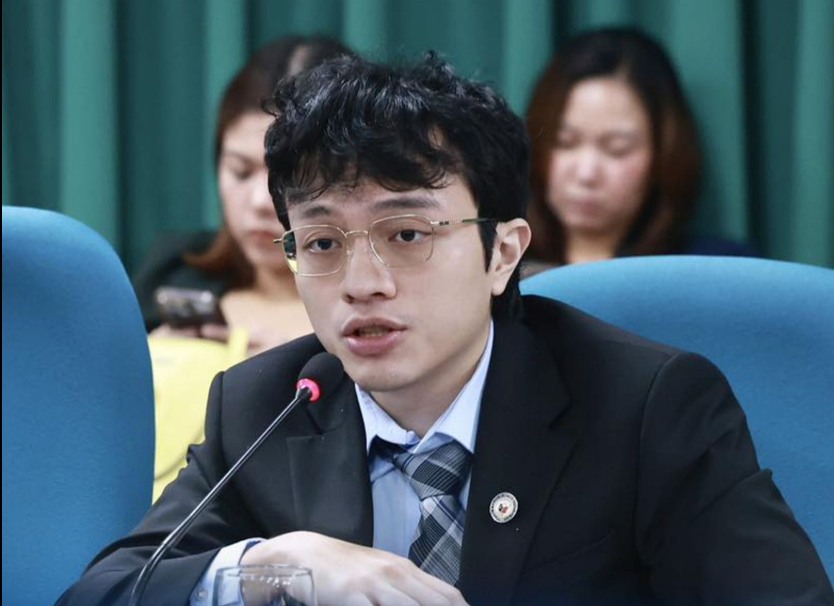By Diego Morra
Despite all the disinformation and outright stupid claims by the Dutertes and their minions, along with legal counsel that panders to Sara Duterte troll army, the Office of the Prosecutor (OTP) of the International Criminal Court (ICC) has filed additional criminal charges against the unlamented ex-Philippine president.
The filing came as Sara Zimmerman Duterte Carpio, Duterte’s daughter, complained that her father was visited by Filipino officials at his detention cell at the Scheveningen Prison in The Hague for a “welfare check” without informing the Duterte family. Duterte’s custodians do not take orders from the families of the detainees as the ICC itself supervises them. On the other hand, the Marcos Jr. administration suspected the Dutertes were behind the attacks on police and public and private property in Manila after the massive September 21, 2025, protest against corruption.
In its submissions filed to the ICC Pre-Trial Chamber I on September 22, 2025, the prosecution panel alleged that Duterte was the architect of a “common plan” to eliminate suspected criminals through systematic murder between November 2011 and March 2019. In their 78-page pre-confirmation brief and a 23-page public version of the Document Containing the Charges (DCC), the prosecutors described how Duterte used state agents, police death squads and civilian gunmen to carry out the killings.
Duterte, who became mayor of Davao City in 1988, the filing continued, organized “liquidation squads” of police officers and civilian gunmen soon after taking office. Notoriously known as the Davao Death Squad (DDS), these untouchable murderers were tasked with willing alleged drug pushers, robbers, petty criminals and even minors. Witnesses said Duterte personally instructed members to kill, armed them during initiation rites and offered rewards for assassinations. The DDS operated until 2016, shielded by a “code of silence” and protection by Duterte. In the early 2000s, Duterte bragged about his killing frenzy, saying in 2003 that he was “terrorizing the criminals.”
Researchers comprised of lawyers, priests. Ministers, activists and journalists estimated that hundreds were murdered during his tenure as Davao City mayor while Duterte said he was responsible for 1,700 deaths. Duterte normalized extrajudicial killings (EJKs) and tagged it as the Davao model that should be the template for other cities. Prosecutors said merciless killings involved the murders of several brothers, the shooting of a seven-year-old boy for theft, the murders of young men mistaken by gunmen as their prey. The DDS became the blueprint for the nationwide drug war implemented by then Philippine National Police (PNP) chief Gen. Ronald “Bato” de la Rosa, now a senator, when Duterte was elected president in 2016.
Upon taking power on June 30, 2016, he launched “Project Double Barrel,” which included Operation Tokhang — house-to-house visits of alleged drug users — and targeted operations against so-called “high-value” suspects, with orders not to take in prisoners. The filing showed that from July 2016 to November 2017, 3,967 people were killed in police operations and 16,355 deaths classified as “drug-related homicides.” By early 2019, official records confirmed more than 5,200 deaths were killed in anti-drug operations. Independent studies presented to the court argued that the shootouts were actually executions. A review of police records in Bulacan revealed what prosecutors described as a “clear shoot-to-kill policy,” with almost all suspects killed. The total number of murders exceeded 30,000, human rights advocates claimed, many of them committed by policemen and informers from Davao City under the command of a Duterte network of police and military officers, which controlled nationwide operations at all levels.
The ICC prosecution charged Duterte with three counts of crimes against humanity: Count 1- Murder in Davao City (2013–2016) with 19 victims, including drug suspects and petty criminals, killed by the DDS and police units under Duterte’s control; Count 2- Murder of High-Value Targets Nationwide (2016–2017), with 14 accused of being high-level figures in the drug trade killed under Duterte, and; Count 3: Murder and Attempted Murder in Barangay Operations (2016–2018), with 45 people killed or targeted in community-level anti-drug raids across the Philippines. All of these, prosecutors said, were part of a “widespread and systematic attack” against civilians.
Deputy Prosecutor Mame Mandiaye Niang submitted the charges, which PTC 1 will evaluate. Once determined that the evidence is sufficient to confirm the charges, Duterte will officially be tried. The case stemmed from years of complaints filed by victims’ families, human rights organizations led by Karapatan, the National Union of People’s Lawyers (NUPL), the Public Interest Law Center (PILC), church groups and international observers who documented thousands of deaths during Duterte’s incumbency. Specifically, Duterte was accused of masterminding the killings, crafting the methods employed, exercising operational control, providing material support and giving rewards and protection to the murderers. The prosecution concluded that Duterte acted as an indirect co-perpetrator under Article 25(3)(a) of the Rome Statute and bore responsibility for ordering, aiding, and abetting killings.




